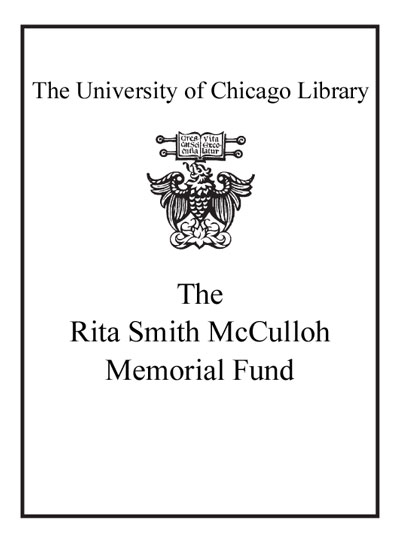Improving academic achievement : impact of psychological factors on education /
Saved in:
| Imprint: | San Diego : Academic Press, c2002. |
|---|---|
| Description: | xxvii, 395 p. ; 24 p. |
| Language: | English |
| Series: | Educational psychology series Educational psychology series (Academic Press.) |
| Subject: | |
| Format: | Print Book |
| URL for this record: | http://pi.lib.uchicago.edu/1001/cat/bib/4684801 |
Table of Contents:
- Contributors
- Foreword
- Preface
- Acknowledgments
- I. Introductory Chapter
- 1.. Self and Self-Belief in Psychology and Education: A Historical Perspective
- Historical Development of Research on the Self
- The Insurgence of Behaviorist Theories
- The Humanistic Revolt
- The Cognitive Revolution
- Return of Interest in the Self
- Why the Resurgent Interest in Self-Beliefs Is Warranted
- II. Revisiting and Extending Classic Lessons
- 2.. The Pygmalion Effect and Its Mediating Mechanisms
- Some Early Results
- Teacher Expectation Effects
- Replicability of Pygmalion Effects
- The Four-Factor "Theory"
- 3.. Messages That Motivate: How Praise Molds Students' Beliefs, Motivation, and Performance (in Surprising Ways)
- The Role of Motivation in Achievement
- The Role of Beliefs in Motivation: Overview of the Chapter
- Students' "Theories of Intelligence"
- Can Theories of Intelligence Be Changed?
- Pygmalion and the Malleable Theory
- Conclusion
- 4.. The Paradox of Achievement: The Harder You Push, the Worse it Gets
- Excellence in Education
- A Motivational Analysis
- Motivation and Learning Outcomes
- What Leads Teachers to Control?
- Conclusion
- 5.. Improving the Academic Performance of College Students with Brief Attributional Interventions
- Misattribution Research
- Reattribution Interventions
- Improving the Academic Performance of College Students
- Recommendations for Educators
- 6.. Self-Handicapping and School: Academic Self-Concept and Self-Protective Behavior
- Self-Handicapping Motives
- Individual Differences in Self-Handicapping Tendencies
- Consequences of Self-Handicapping
- Indications for the Classroom
- 7.. The Wisdom of Practice: Lessons Learned from the Study of Highly Effective Tutors
- Background
- Studying "Expert" Tutors
- Some General Preliminary Findings
- The "Expert" Tutor
- The INSPIRE Model
- Summary
- Implications
- 8.. Students' Motivation During the Middle School Years
- Biological and Cognitive Changes at Early Adolescence
- Changes in Self-Concept and Motivation During Early Adolescence
- The Middle-Grade School Transition and Student Motivation
- Gender Differences in Motivation and Self-Concept at Early Adolescence
- 9.. Self-Efficacy and Self-Regulated Learning: The Dynamic Duo in School Performance
- Self-Efficacy
- Self-Regulated Learning
- Implications for Teachers
- Conclusion
- 10.. Building Empathy, Compassion, and Achievement in the Jigsaw Classroom
- Taking a Close Look at the Classroom Atmosphere
- Changing the Classroom Atmosphere
- The Jigsaw Classroom
- Cooperation: Jigsaw and Basketball
- Long-Term Effects?
- A Postscript
- 11.. Intelligence is not Just Inside the Head: The Theory of Successful Intelligence
- Inadequacy of Conventional Notions of Intelligence
- Three Aspects of Successful Intelligence
- Conclusion
- III. Current Lessons
- 12.. Being and Becoming a Good Person: The Role of Emotional Intelligence in Moral Development and Behavior
- What is Emotional Intelligence?
- A (Very) Brief History of Moral Psychology and Emotion
- Perceiving and Appraising Emotions
- Emotions That Help Us Think
- Employing Emotional Knowledge
- Effectively Regulating Emotions in Ourselves and in Others
- A Word About Moral Principles
- Moral Education
- Conclusion
- 13.. Mozart and the Mind: Factual and Fictional Effects of Musical Enrichment
- School District of Kettle-Moraine Study
- Theoretical Interpretations
- The Link Between Music and Math
- Implications for Public Policy
- 14.. Stereotype Threat: Contending and Coping with Unnerving Expectations
- Stereotype Threat
- Contending with Stereotype Threat
- Coping with Stereotype Threat
- Reducing Stereotype Threat: What Teachers Can Do
- Conclusion
- 15.. A Barrier of Mistrust: How Negative Stereotypes Affect Cross-Race Mentoring
- Stigmatization Impedes the Establishment of Trust
- Mistrust Undermines Motivation and Performance
- Allaying Stigmatization Enhances Motivation and Performance
- The Mentor's Dilemma: A Specific Application
- Generalizing the Framework: Women Working in the Natural Sciences
- The Other Side: Some Effects of Stigmatization on Teacher Feedback
- Additional Strategies for Creating Trust
- Conclusion
- 16.. Toward A Resolution of An American Tension: Some Applications of the Helping Model of Affirmative Action to Schooling
- Legal Manifestations of an American Tension
- What Have We Learned from Attempts at School Desegregation?
- What Have We Learned from Recent Attempts at Affirmative Action?
- An Overview of the Helping Model of Affirmative Action
- Affirmative Action as Help: A Donor's Perspective
- Affirmative Action as Help: A Recipient's Perspective
- Towards Cooperative and Democratic Help
- A Democratic Vision for Schools
- 17.. Social Exclusion in the Classroom: Teachers and Students as Agents of Change
- Social Exclusion as a School Problem
- Why are Children Excluded?
- Current Interventions
- Intervening in the Process of Exclusion
- An Alternative Intervention Approach
- Suggestions for Future Research and Classroom Practice
- Postscript
- Index

